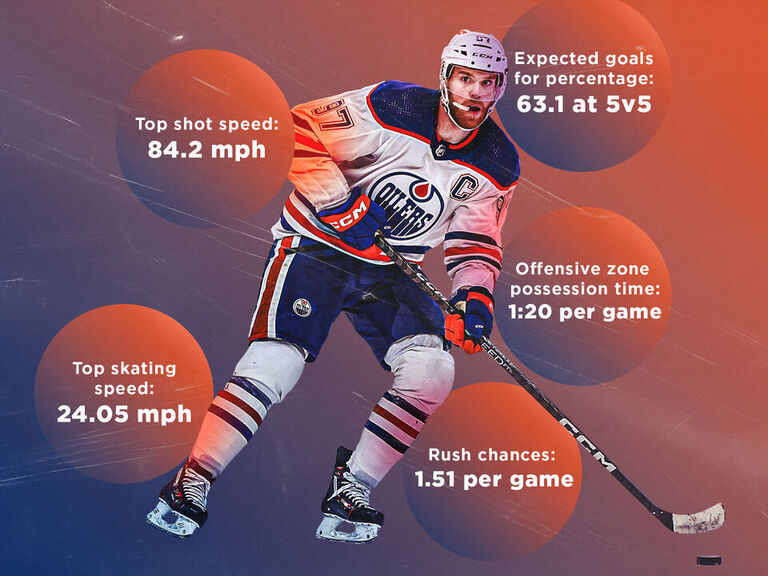Good article. Weird flex.
Innovation, information and finding efficiencies or inefficiencies has always been part of the game whether coaching, equipment, sports science, enhancing information capture and analysis. Moving beyond the eye test to more structured data collection and analysis took its leap into mainstream last decade.
I think Cassidy's insight summarizes this support function well. Build the strategy, execute with personnel, test and ongoing utilize information through statistics to drill down and assess and evaluate against strategy and process.
"Players determine success, not numbers," Cassidy said. "But it sure can help you coach your players. I think the data itself has come a long way, and the coaches I think who are current will use analytics to their advantage."
Numbers can also be a check on team identity for Cassidy. Vegas famously packs the middle of the ice on defense to limit shots from prime scoring spots, so it's OK if the club ranks high in defensive-zone time. It's not OK, however, if it ranks high in high-danger scoring chances against.
"I can look at certain areas and say, 'Yeah, that number's no good. That's one of the reasons our game has slipped a little bit,'" Cassidy explained. "Other numbers could be there - high or low - and they do not go hand in hand at all with what's going on on the ice because it's not relevant to how we play."
I like the insight about Ron Francis, a deep and knowledgeable hockey lifer 'saw it gooder' type who stepped up to hire a non-traditional, trained data scientist to augment his decision making capability. Bringing far more sophisticated with R & D was a necessity lacking in operating a billion dollar big business. I hope that a guy from the Jim Rutherford, Ron Francis management tree, Jason Botterill, will get strong consideration as the Oilers next GM. Blend the deep hockey experience with a growth mindset open to all innovations to winning including a trained data science team which is now in place.
Read a solid book about the Boston Red Sox focused on their organizational approach to guide their business operations. One critical hire is like a high level translator with credibility as an ex-player but deeply versed in analytics and data science bridging the two worlds. Then implementing consistent management philosophy and team strategy throughout all levels of their farm system.


